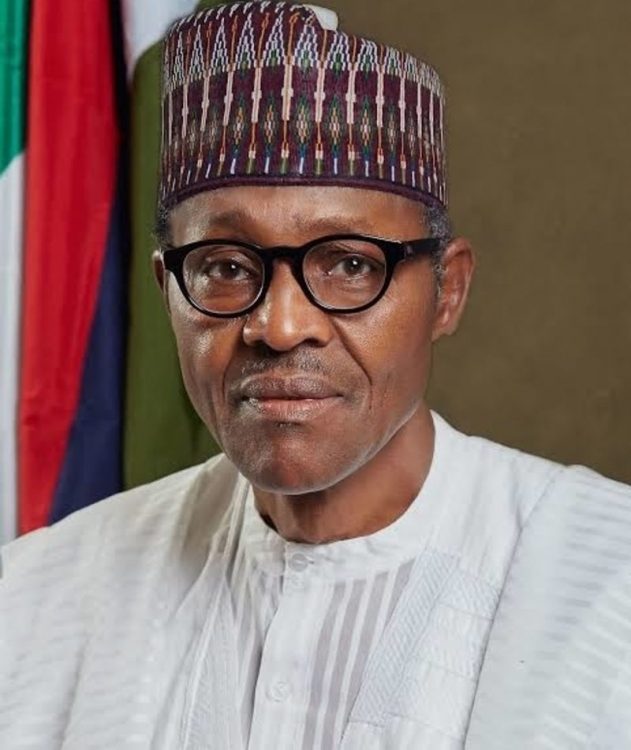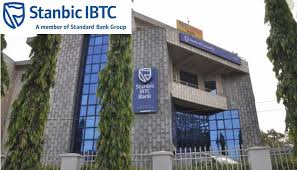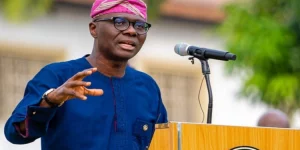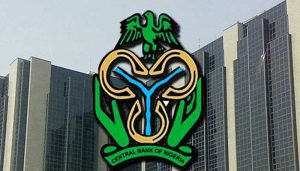
By Hababat Aliu
The Federal Government has been charged to establish a clear mechanism and align fiscal, monetary, trade, industry, and investment policies implementation that reduces conflicts increases coherence, and boosts investor confidence.
Giving the charge yesterday at the Vanguard Economy Discourse theme: “Taming Inflation and Stimulating Growth: The place of Fiscal and Monetary Policies,” held in Lagos, economic experts called for economic policy coordination reforms to curb the high rate of inflation, which has greatly affected the economy and has also increased the rate at which people leave the country.
The keynote speaker, who is the Chairman, the Nigerian Economic Summit Group (NESG), Mr. Niyi Yusuf, said rising inflation has led to low growth in critical sectors of the economy, adding that excessive inflation beyond the threshold becomes harmful to economic growth.
According to him, over the last eight years, statistics have shown that while the Federal Government operated an expansionary fiscal policy, the monetary policy has oscillated between contractionary and expansionary stances.
He said this divergence between fiscal and monetary policies would make taming inflation and sustaining growth in Nigeria a wild goose chase.
According to him, there should be a review of the federal institutional framework for national economic policy development, economic management and market regulation to ensure policies inform regulations that drive market expansion.
He also charged the government to ensure the alignment of economic and social development policies that pursue measurable and traceable productivity and employment outcomes, which he said would ensure economic growth is inclusive and reduces inequalities.
Yusuf also charged the government to boost competition by embedding it in well-aligned policies, institutions and carefully sequenced reforms, which will build market and investor confidence for longer-term investments that drive down costs, as well as boost access to stable electricity power supply through investment in infrastructure and reforms to fix market failures.
While calling for a fiscal policy reform, the NESG boss, said Nigeria spends a large amount on untargeted subsidies and maintains a retail petrol price that is one of lowest in the world and supported by an opaque regime.
Yusuf also called for increased government expenditure efficiency and transparency while reviewing all forms of untargeted subsidies, tax waivers and incentives
Other policy reforms he listed include, increasing non-oil revenues through tax net expansion and collection efficiency, development of an integrated fiscal management strategy to expand the funding mix through PPP, innovative structured finance and intervention funds.
Yusuf also called for contained inflation by reducing Federal Government recourse to CBN’s finance, while urging the apex bank CBN to adopt a single market-reflective exchange rate and set a clear monetary policy framework that increases access to finance.
“There is a need for collaboration between the fiscal and monetary authorities to support the economy, as well as facilitate domestic trade and boost economic value addition through the removal of FX and trade restrictions,” he said.
The President, Manufacturers Association of Nigeria (MAN), Francis Meshioye, said there have been more talks about fiscal and monetary policies, noting that CBN has always focused on managing the money supply, rather than the main issue, which is the cost of production.
Meshioye, who was represented by the Director, Corporate Services, MAN, Ambrose Oruche, also lamented that there have been increased calls for increase in Value Added Tax (VAT) using other economies’ high VAT to compare with Nigeria, rather than see the difference in the environments of the countries, which are not the same.
He said manufacturers in Nigeria pay so many taxes and levies that other climes do not pay or even know about it.
According to him, once manufacturers bring in consignment at the port, he is faced with hike in duty from the Nigeria Customs Service (NCS), as well as the roadblocks and extortion points on the port access roads.
Meshioye said manufacturers, after going through the bottlenecks of bringing the consignments to the factory, are faced with regulatory agencies that hike their rates almost everyday.
He said after paying all the expenses and then pushing the products to the markets, consumers neglect them and patronise the imported ones due to price difference.
The Director-General, Nigerian Association of Chambers of Commerce, Industry, Mines and Agriculture (NACCIMA), Sola Obadimu, queried the authenticity of the NBS inflation data of 21 per cent, while arguing that the figure is more than that with the reality on ground.
“We should be able to address the reality of the divergent exchange rate. Why do we have a N300 margin or gap between the parallel and the official rate? Why do we even have all these multiple rates?” he queried.
He also lamented on why pilgrims are given export window access to forex at the official price, while manufacturers with export potential have to source for forex at about N700.
The Group Chief Executive, Emerging Africa Capital Limited, Mrs. Toyin Sanni, said reduced foreign investment, credit availability, productivity and reduced savings, as well as high inflation and economic instability have made Nigeria less attractive destination for investment.
She said in the absence of a major reform initiative and total overhaul of the economy, the country would not achieve the desired growth.
She, however, recommends that Nigeria should reduce spending, widen the tax net and find a way in which the government can generate more revenue by way of taxes and implement policies to improve infrastructure to make the country an attractive destination for investors.
The Chairman and Founder, The Chair Centre Group, Mrs. Ibukun Awosika, said the country is spending over $200 million on payment of school fees in other countries, which she said should have been retained and invested in educating citizens.
“The impact means that every penny you pay for education for every child that chooses not to come back, it is not an investment for our nation, it is a total export of resources for which we might never get any return on capital investment,” she said.
Responding, the Governor, Central Bank of Nigeria (CBN), Godwin Emefiele, said all the economic policies in the books will not work in Nigeria, which is why the apex bank is making efforts apart from the monetary policy through its traditional role.
He said the apex bank does not believe in blame games, saying, “We see a lot of reactions coming, trying to blame one person or the other or one situation or the other. We believe that the economy of Nigeria is in our hands and so all of us will have to work together – The monetary authority, the fiscal authority, from all of us as Nigeria. Until we begin to take steps ourselves, having faith in our country and economy, we won’t be able to go too far.”






